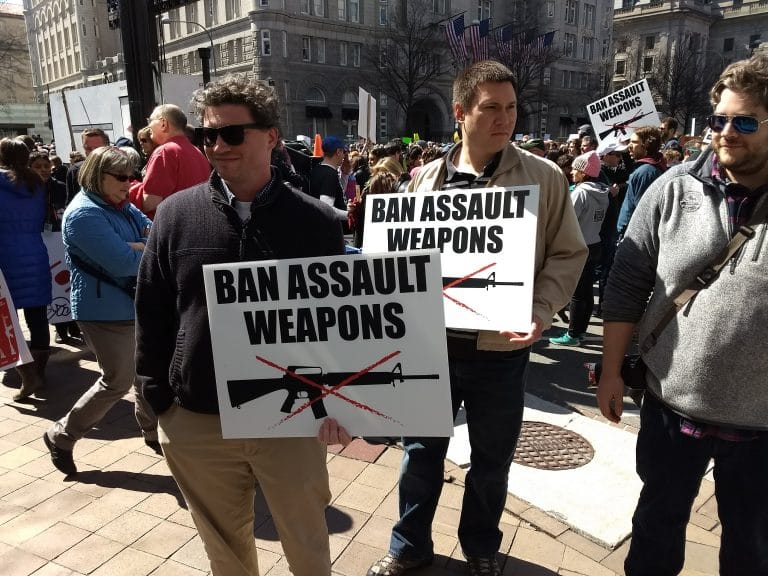Activists who want to ban “assault weapons,” including the popular AR-15, faced multiple setbacks this week. Legal and political events cast doubt on the future of those bans in the United States.
The most obvious development was a federal judge ruling California’s ban unconstitutional. The ruling was the first time a district court judge struck down a state-wide ban. The ruling has been stayed, so nothing changes for the average Californian just yet. The Ninth Circuit may well reverse the lower court’s decision (or they may not, as I discussed last week) but, if they do, the timing will be good for a newly invigorated Supreme Court to take up the case. That could spell the end for “assault weapon” bans across the country.
But a smaller development in Virginia may be just as valuable in judging the political standing of these gun bans. Delegate Mark Levine (D.) was the major driving force behind the push to pass new gun laws after Democrats captured total control of the state government. He sponsored two successful gun bills and managed to shepherd an assault weapons ban to passage in the House of Delegates before moderate Democrats defeated it in the state senate.
On Tuesday, after running on his gun record, he lost his bid to be the Democratic nominee for lieutenant governor. Worse, he lost reelection for his own seat. Levine is now completely out of state government just a year after leading the successful House effort to pass new gun laws.
His opponent doesn’t appear to be a gun-rights proponent, but she didn’t even mention the issue on her website, and her campaign focused on climate change and economic issues. That suggests pushing for a ban on AR-15s and other guns did little to help Levine and may have even hurt him in his deep-blue district.
This is likely why Levine didn’t even bother to introduce his failed assault weapons bill in 2021, and Virginia Democrats largely left guns alone during the election-year session. We can see the same effect at the national level too. Democrats have control over the House of Representatives but didn’t even put an “assault weapons” ban to a vote in 2020, haven’t done so to this point in 2021, and are exceedingly unlikely to do so before the 2022 midterms.
It’s actually quite odd that bans on AR-15s have consistently been at the center of the gun-control debate over the past 30 years, since only eight states have actually passed one, and they all passed their initial bans three decades ago. Permitless gun carry has been passed in 19 states over the past decade. The same number have passed “red flag” laws.
Assault weapons bans have been politically stagnant since the 90s, but we still talk about them all the time. That may be coming to an end soon, though.







5 Responses
Thanks for excellent analysis. The question everyone asks me is “Why do you need an AR/AK type of gun, anyway?”
I tell them the truth when it comes to self defense: An AR/AK type of firearm is more accurate and allows a defender to better avoid non-threats, shoot from a safer distance, able to take out a hostage taker, and with large capacity magazines, able to outlast an active shooter. I also explain that pistols are more difficult to use accurately at distances beyond 10 yards for average people.
Why don’t I see more people using this argument?
Those are all legitimate points. I do see people use them in debates over the guns but, yes, many arguments in favor of ARs boil down to “because I want one and it’s none of your business.” Which may well be true but is also far less persuasive.
I also tell folks that they are a great gun for people with petite frames particularly ladies. Someone who is 5’3 and under 150 lbs is already going to have a tough time fending off a much larger male attacker: wouldn’t you want them to have every possible advantage including low weight and recoil? The proverbial double barrel shotgun Biden recommends (Elmer Fudd’s weapon of choice) has a low ammo capacity, heavy weight, and high recoil. Then there’s the fact that as the most popular sporting rifle in the US millions of black, brown and Asian Gun owners who just recently bought an AR15 would become felons overnight in a nation where they are already disproportionately incarcerated compared to their white peers.
Yes, those are valid points as well. There are many reasons the AR-15 is the most popular rifle in the country.
In response to a post on Newsweek, I found myself doing some statistical analysis on the per capita ownership of guns versus the homicide rate. The orginal post claimed that the reason we have such a high homicide rate is because we have the highest gun ownership rate. I did some research and here are my results:
It’s true we have the highest number of firearms per capita at 120 per 100K. But we do not have an unusually high intentional homicide rate. Our homicide rate per 100K is about 5. The rate in the countries with the highest homicide rate are:
El Salvador 82
Honduras 56
Venezuela 56
Jamaica 47
Lesotho 41.25
Belize 37
South Africa 34
.
Now take the ratio of homicide rates to gun ownership rates per 100K.
The ratio of homicides to gun ownership in high homicide countries is:
El Salvador 6.9
Honduras 4.1
Venequela 3
Mexico 2.1
Cuba 4.04 (A communist country where firearms are strictly prohibited for civlians.)
Short list of countries with higher levels of gun ownership:
USA 0.044
Yemen 0.13 (2nd Highest gun ownership)
New Caledonia .076
Serbia .035
France 0.13
Then I compared the rates:
Cuba’s rate of homicide to gun ownership is 90X of the USA;
Mexico’s rate is 48X of the USA
Even France’s rate is 3X higher than the USA.
The point here is that, if anything, higher numbers of guns keep our homicide rates very low. They may not be the lowest, but we are doing just great, and we have the firearms we need to defend ourselves and our country.